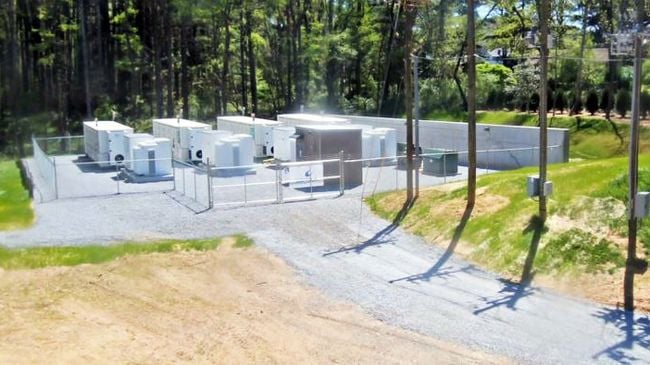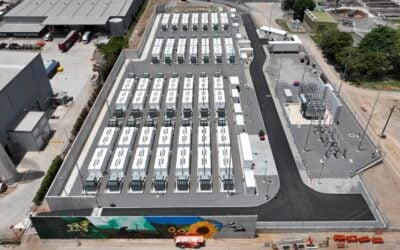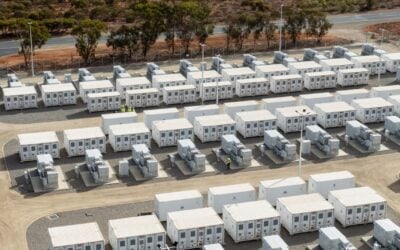
North Carolina Eastern Municipal Power Agency (NCEMPA) has issued a Request for Proposals (RFP) for battery storage to manage its electricity costs, with 15-year contracts on the table for the delivery and operation of a turnkey energy storage system.
The group serves 32 cities and towns in eastern North Carolina, with each city or town operating its own municipal electric distribution system. NCEMPA supplies wholesale power to each after purchasing electricity from utility Duke Energy, which bought NCEMPA’s generation assets for around US$1.25 billion five years ago.
NCEMPA emailed Energy-Storage.news earlier this month to announce the RFP. The group wants to reduce the amount of power it buys from the utility during peak demand periods, for which it gets billed a higher rate than during off-peak times. According to the RFP document, prepared for the municipal group by engineering and consultancy group GDS Associates, NCEMPA’s demand usage each month is billed for in aggregated 60-minute integrated demand periods that coincide with the supplier’s peak demand periods.
Duke Energy had originally objected to NCEMPA using battery storage as a form of demand response or demand side management to achieve ‘peak shaving’, stating that the terms of the Full Requirements Power Purchase Agreement (FRPPA) in place between the two prohibited it. However after NCEMPA filed in December 2019 for the Federal Energy Regulatory Commission (FERC) to intervene, FERC declared in September in favour of the municipal power group, rejecting Duke Energy’s interpretation of the FRPPA as “restrictive”.
Try Premium for just $1
- Full premium access for the first month at only $1
- Converts to an annual rate after 30 days unless cancelled
- Cancel anytime during the trial period
Premium Benefits
- Expert industry analysis and interviews
- Digital access to PV Tech Power journal
- Exclusive event discounts
Or get the full Premium subscription right away
Or continue reading this article for free
The group is therefore seeking competitive proposals for battery energy storage systems (BESS) that can charge during off-peak periods and discharge stored energy during peak load periods to reduce these coincident peak hour demands. Peter Maloney reported for the American Public Power Association website back in September that NCEMPA noted in the discussion with FERC and Duke Energy that municipal utility members would use the discharged energy themselves – it would not be injected back into Duke’s transmission grid.
“We’re investing in cutting-edge battery technology to provide a host of benefits for electric customers in eastern North Carolina,” Roy Jones, CEO of ElectriCities, the non-profit group that manages NCEMPA and other municipally-owned electric utilities in North Carolina, South Carolina and Virginia, told Energy-Storage.news today.
“We are excited about the opportunity to bring increased reliability and security to the grid while reducing cost and better integrating renewable energy sources.”
NCEMPA is requesting pricing for six different configurations of BESS, in 5MW and 10MW rated output with anywhere from 10MWh to 40MWh of capacity and with two hours to four hours’ storage duration. Vendors will be expected to deliver a turnkey BESS system, including carrying out design, engineering, permitting and other duties, for the project to begin commercial operations no later than 1 December 2022.
GDS Associates project manager Matt Smith told Energy-Storage.news that a site selection process is underway and approval is expected in April. A pre-bid meeting, which is optional, will be held this week on 28 January while the RFP must be responded to by 11 March. In addition to paying for the BESS system, NCEMPA is also offering 15-year fixed rate (US$/kW-month) contracts for energy capacity guaranteed and for the system’s long-term service agreement.





